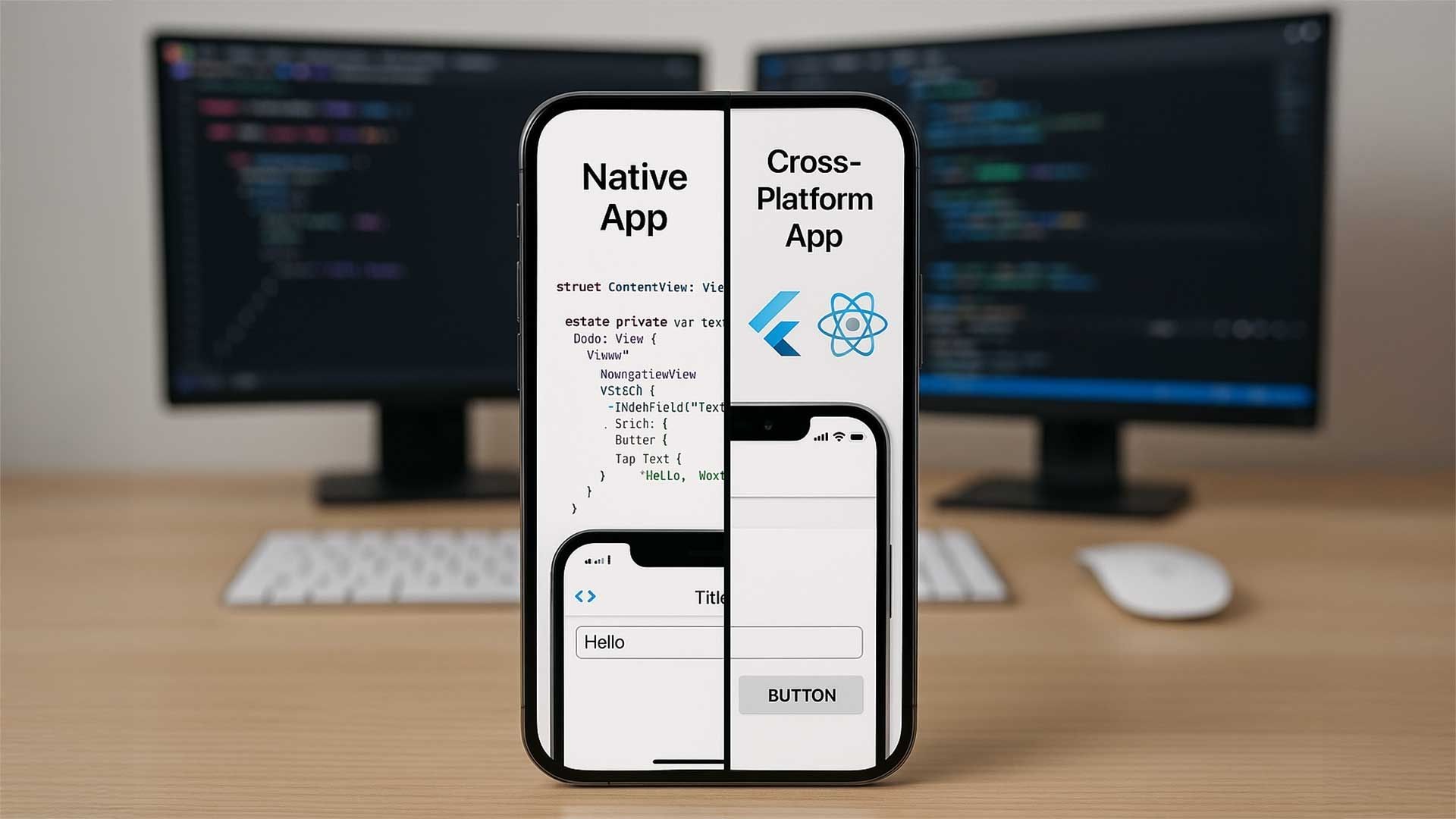
Choosing the Right Mobile App Development Approach: Native vs Cross-Platform?
July 30, 2025 - 4 min readDeveloping a mobile app involves more than building a functional product. The technology choice affects everything from app performance and development cost to timeline and long-term maintenance. In this blog, we compare native and cross-platform approaches to help you determine the best option for your project.
What is Native App Development?
Native apps are developed using platform-specific languages like Swift (for iOS) and Kotlin (for Android).
- Best-in-class performance
- Full access to device features (camera, sensors, etc.)
- Superior security and customization
- Requires separate development for each platform
- Higher time and cost
What is Cross-Platform App Development?
This approach uses a single codebase to build apps for multiple platforms. Technologies like Flutter, React Native, and Xamarin are commonly used.
- One codebase for both iOS and Android
- Faster development cycles
- Lower costs
- Performance may not match native in all cases
- Limited access to some platform-specific features
When to Choose Which?
- Targeting one platform only (e.g., iOS): Native is ideal.
- Limited budget and tight timelines: Cross-platform is efficient.
- Apps needing high graphics performance (e.g., games): Native is preferred.
- Startups launching MVPs quickly: Cross-platform is a strong option.
2. Prioritize Mobile Responsiveness
Most users access digital content via mobile devices. Responsive design, intuitive touch areas, and properly scaled elements significantly improve mobile user experience.
Frequently Asked Questions
1. Can cross-platform apps perform as well as native?
Yes for general functionality, but native has an edge in graphics-heavy or hardware-intensive apps.2. Is a single codebase always an advantage?
Yes for simple to mid-sized apps. For complex projects, platform customizations can complicate development.3. Which framework should I choose?
If performance is key, go with Flutter. If you prefer JavaScript, React Native is more suitable.4. Which approach simplifies updates?
Cross-platform solutions typically offer faster update cycles.
Conclusion
Choosing the right mobile app technology is about planning not just for today, but for long-term scalability and performance. At Momentup, we have hands-on experience with both native and cross-platform development. Let’s determine the best approach for your project together.